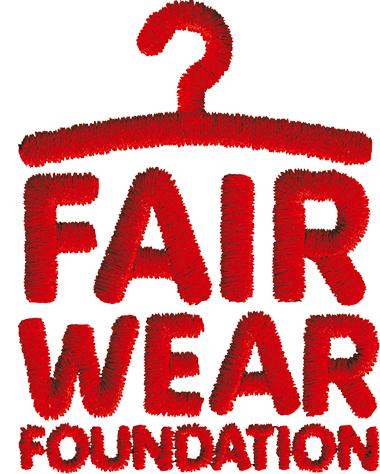Final report of complaint in Bangladesh at factory that supplies Takko – August 2013
On 28 August 2013 FWF received a complaint from a worker from a factory supplying Takko through the workers helpline. The complaint related to three labour standards: ‘no discrimination in employement’, ‘safe and healthy working conditions’ and ‘legally binding employment relationship’.
The complainant claimed she was fired unjustly. Fair Wear Foundation formed a team of three persons to investigate the issue of which the findings can be found in this document. When Takko Fashion tried to set up a meeting for the investigation team and the factory, it was informed that both the factory and the agent have decided to end business relationship on 31 October due to other business reasons. Therefore it was not possible to follow up or verify. FWF was informed by the son of the complainant that she had returned to her hometown and has not been able to contact her since.
Download
final report bangladesh complaint against a factory supplying Pama
On 4 June 2013 FWF received a complaint from a worker working in a factory supplying Pama. The complaint related to the labour standards ‘discrimination in employment’ and ‘safe and healthy working conditions’ that are part of FWF’s Code of Labour Practices.
FWF informed the affiliate – Pama International. The brand discussed the issue with the manager of the supplier immediately. The factory admitted the problem and paid complainant, who finally resigned. The factory has sent photos to Pama International on the improvements regarding the issues of the complaint.
FWF strongly recommends Pama International to enroll the factory in the Workplace Education Programme.
Download
FWF gender policy statement
FWF promotes decent work for men and women workers producing garments for FWF member companies. Because of the preponderance of women workers in the global industry and the extra obstacles women face caused by gender discrimination or unequal treatment, without a clear gender perspective in our work it is impossible for FWF and its stakeholders to improve the lives of workers in the garment/ textile supply chain. This demands a clear commitment to gender equality and a gender perspective in all FWF activities.
In order to bridge the gap that women are facing, FWF will encourage better representation of women represented in the workplace. This in order to be able to effectively improve the lives and opportunities of women and ensure that their voice is heard. The commitment to intensify efforts to fulfil the FWF labour code obligations on gender equality is set against a body of international standards on women’s economic and social rights that recognises gender equality as a human right. Gender equality will be mainstreamed into the verification process and in dedicated tools and training developed by FWF. This, we believe, will have wide social benefits, as well as being in the economic interest of workers and key stakeholders.
Download
COMPLAINT assessment IN Turkey AT FACTORY SUPPLYING JC rags
In November 2010 a complaint was filed against one of JC Rags’ Turkish suppliers. According to the complaint, unionised workers had suffered several forms of discrimination including unjust dismissals and threats by supervisors. Several brands sourcing from the factory decided to cooperate in order to resolve the issues. Dutch branch organisation MODINT coordinated the collaboration between buyers, involved industry organisations, BSCI and FWF.
From the start this coalition urged the involved parties in Turkey to negotiate directly with each other in good faith. As this did not resolve the deadlock, an extensive Freedom of Association assessment was done at the involved facilities in cooperation with FLA. The assessment showed that the complaint was grounded and made with a number of recommendations. Shortly after the completion of the assessment, the trade union and the factory managed to sign a collective bargaining agreement. During 2011, several or the recommendations from the assessment report have been implemented jointly by the factory and the trade union.
Download
Final REPORT OF COMPLAINT IN Turkey AT FACTORY THAT SUPPLIES JC rags
In November 2010 a complaint was filed against one of JC Rags’ Turkish suppliers. According to the complaint, unionised workers had suffered several forms of discrimination including unjust dismissals and threats by supervisors. Several brands sourcing from the factory decided to cooperate in order to resolve the issues. Dutch branch organisation MODINT coordinated the collaboration between buyers, involved industry organisations, BSCI and FWF.
From the start this coalition urged the involved parties in Turkey to negotiate directly with each other in good faith. As this did not resolve the deadlock, an extensive Freedom of Association assessment was done at the involved facilities in cooperation with FLA. The assessment showed that the complaint was grounded and made with a number of recommendations. Shortly after the completion of the assessment, the trade union and the factory managed to sign a collective bargaining agreement. During 2011, several or the recommendations from the assessment report have been implemented jointly by the factory and the trade union.
Download







